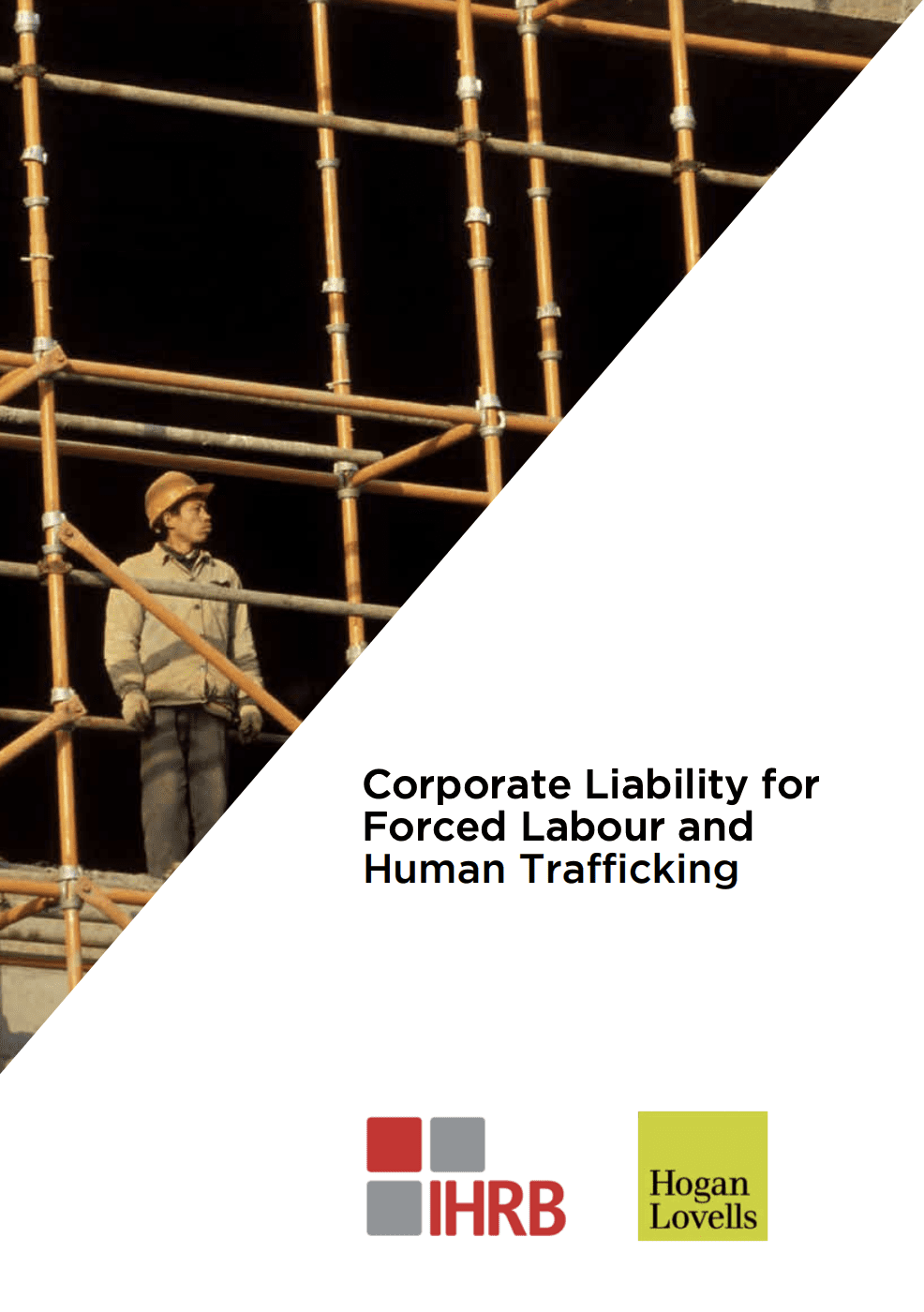
Corporate Liability for Forced Labour and Human Trafficking
Forced labour and human trafficking are abuses that many would like to think have long been eradicated, but they are prevalent across the world today. The International Labour Organization (“ILO”) estimates that nearly 21 million people are victims of forced labour. This includes those who are forced to work under threat of violence or by other means such as accumulated debt, retention of passports or threats of denunciation to immigration authorities.
Companies are increasingly aware of risks associated with issues of forced labour and human trafficking in their supply chains, especially where exploitative recruitment practices are the norm. This report provides an overview of the international laws, regulations and guidelines in place to curtail human trafficking and forced labour, and the specific regimes that apply in a number of jurisdictions, with a focus on the obligations of corporate actors. The eight jurisdictions examined here are the UK, the USA, Qatar, Japan, Brazil, Russia, South Africa and the United Arab Emirates (“UAE”). This range of jurisdictions covers all continents and a number represent host states of recent and forthcoming mega-sporting events, which generate a significant amount of labour migration, a heightened risk of forced labour and trafficking, and a significant degree of scrutiny from civil society, the media, investors and consumers.
It is important to recognise that forced labour and human trafficking are not just supply chain issues. As demonstrated in this report, companies are at risk of criminal liability for any direct use or forced labour or involvement in human trafficking. The main exposure to forced labour and human trafficking risk is through recruitment; particularly the use of agency workers and the actions of employment and recruitment agencies that supply workers to subcontractors. As this report discusses, direct corporate liability for instances of forced labour and trafficking in supply chains is limited; rather the trend internationally is very much towards companies reporting risks and steps required to mitigate risks of violations occurring down the chain. The reputational risk, whether on in-business or supply chain issues, is high.
The legal and regulatory provisions on forced labour and human trafficking vary between jurisdictions. With the exception of Russia, whose relevant domestic law only applies to natural persons, legislation prohibits certain direct acts of trafficking and forced labour (or their equivalent) by corporates in the jurisdictions covered in this note. Companies must avoid any direct involvement in forced labour and human trafficking to avoid liability.
In certain jurisdictions there is also a duty on corporates to issue reports on steps they have taken to prevent human trafficking and forced labour. In the UK, the Modern Slavery Act 2015 aims to ensure transparency by imposing an obligation on companies to report on actions taken to ensure that human trafficking is not taking place in any of their supply chains or in their own business. In the USA, the Federal Acquisition Regulation 2005 requires government contractors to undertake due diligence on certain agents or contractors and for those contractors to provide a certification of compliance with anti-human trafficking rules. The California Transparency in Supply Chains Act requires corporates to issue a statement including suppliers’ certification of compliance with applicable laws. In the UAE, there is a duty on corporates to notify authorities of any incidences of human trafficking of which they are aware.
This report maps corporate liability for forced labour and trafficking across the eight jurisdictions under review, highlighting legislation that applies to corporates and what duties are therefore expected in business operations and activities (including duties to detect, prevent,mitigate, report and remedy incidences of trafficking and forced labour). Importantly, several pieces of legislation on this issue have extra-territorial scope and application that affect companies operating internationally and have far-reaching consequences in supply chains and business relationships. This report comprises a detailed legal mapping, most relevant to inhouse and external legal advisors.
Some of the legislation is wide-reaching and has extra-territorial effect. For example, the UK’s Modern Slavery Act 2015 expressly confers extra-territorial jurisdiction over UK nationals who commit trafficking offences overseas. It also provides that any company (UK or overseas) that carries on a business or part of a business in the United Kingdom, supplies goods or services (this could be anywhere in the world) and has an annual turnover of at least £36 million will be subject to the supply chain transparency provisions of the Act.
Read more here.
